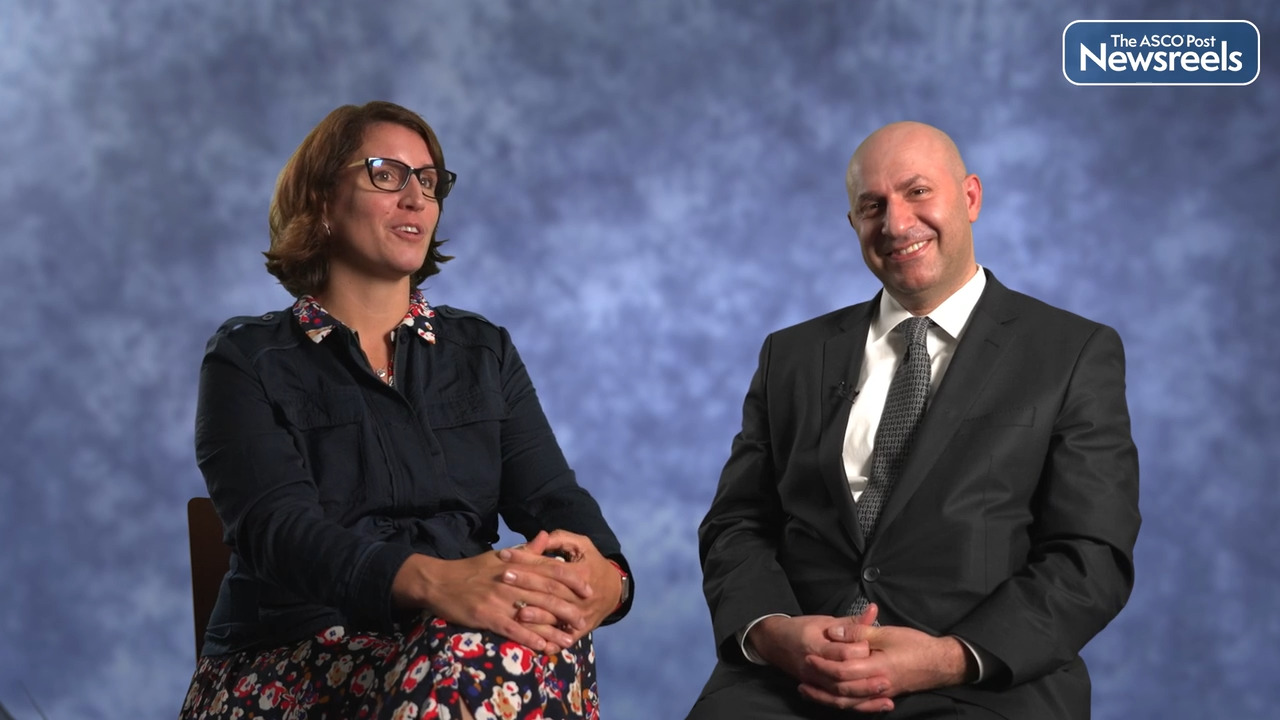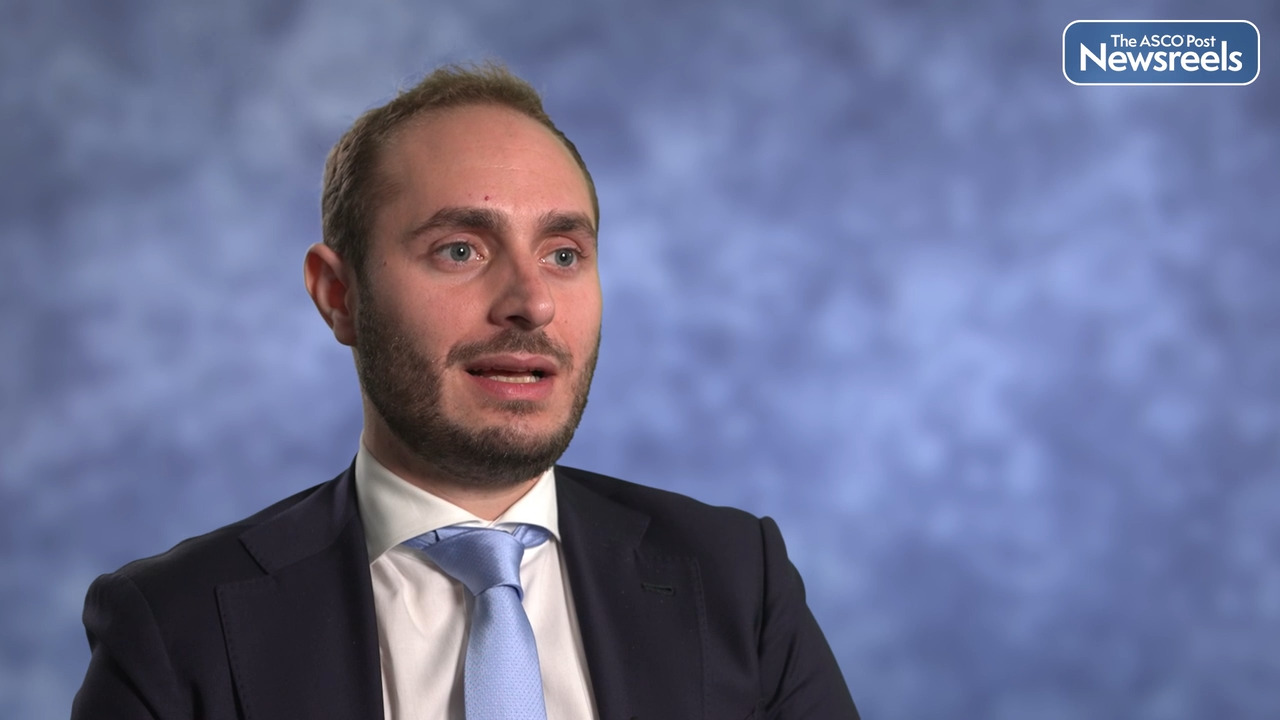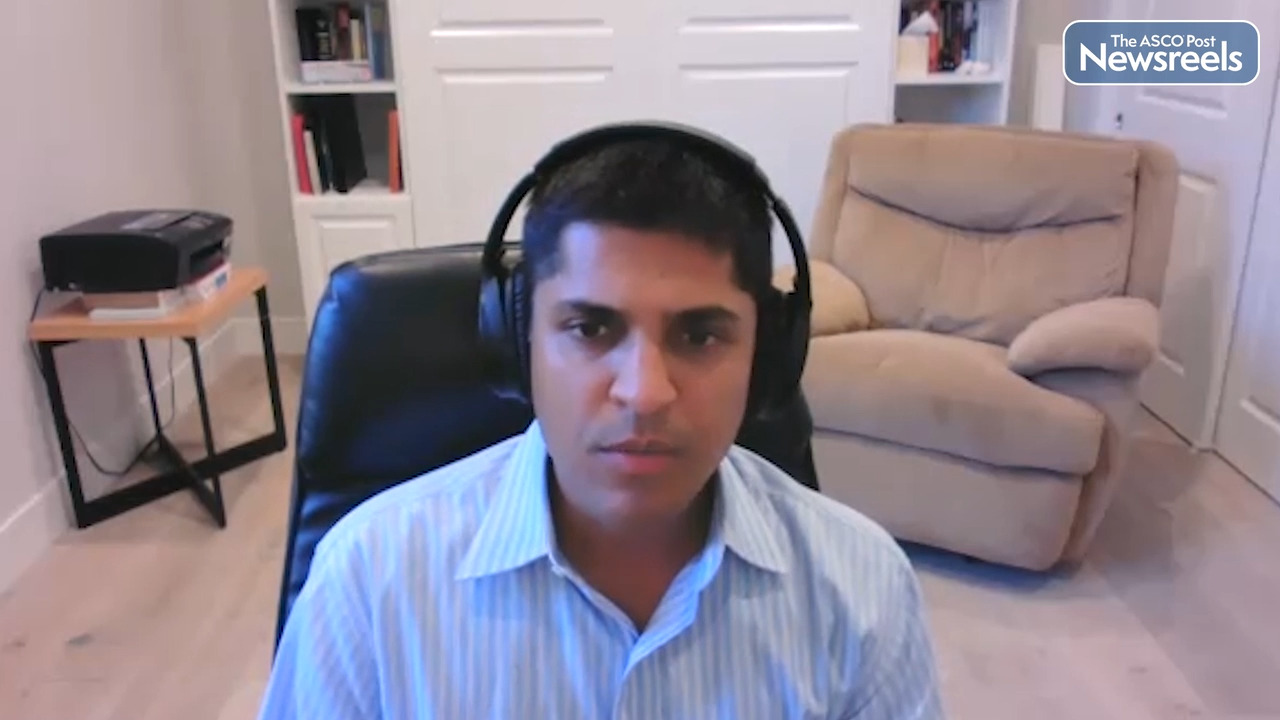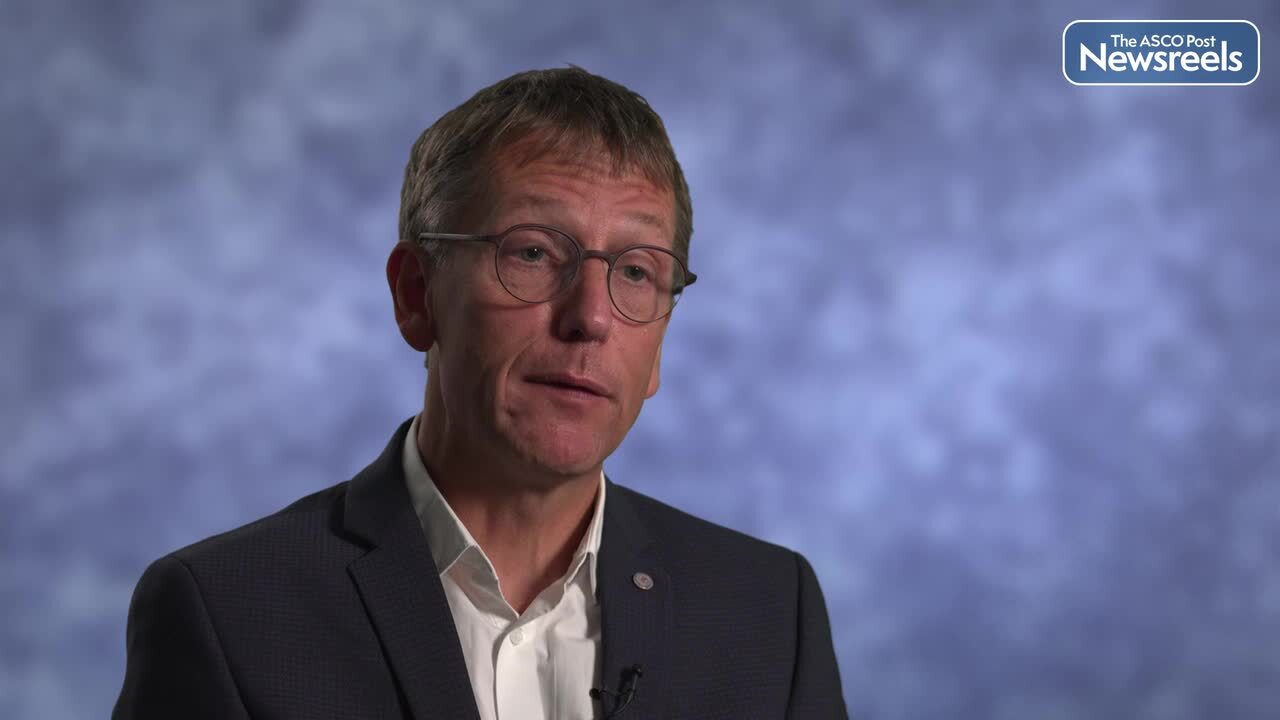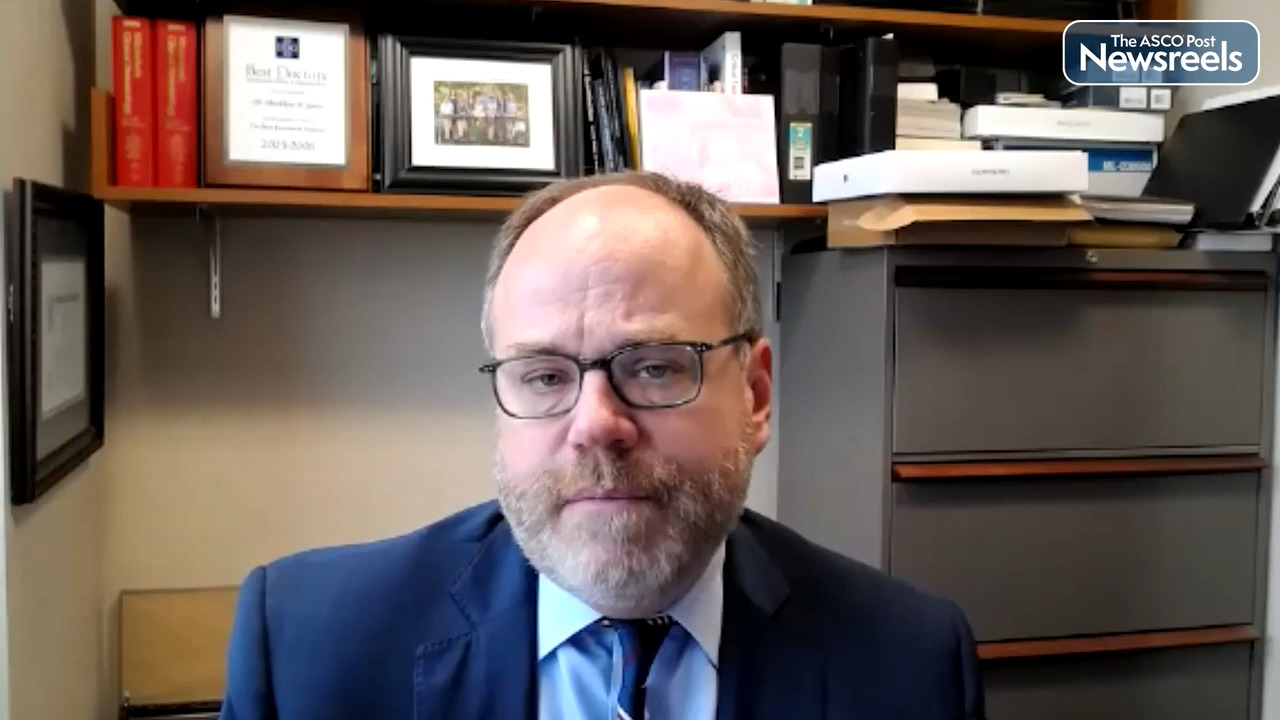Sapna P. Patel, MD, on Melanoma: New Data on Pembrolizumab, Adjuvant vs Neoadjuvant Plus Adjuvant
ESMO Congress 2022
Sapna P. Patel, MD, of The University of Texas MD Anderson Cancer Center, discusses the latest findings from the SWOG S1801 trial, which showed that using single-agent pembrolizumab as neoadjuvant therapy improved event-free survival compared to adjuvant therapy in high-risk resectable stage III–IV melanoma (Abstract LBA6).
Transcript
Disclaimer: This video transcript has not been proofread or edited and may contain errors.
The rationale behind neoadjuvant immunotherapy for melanoma is that cancer comes in contact with T cells that are inside the tumor. If you remove the tumor, you remove those T cells with it. On the other hand, if you give neoadjuvant therapy while the tumor is still in place and those T cells, you end up generating a larger immune response than if you give the same treatment after the tumor is removed. With that in mind, we designed the SWOG S1801 phase II trial. The study was a randomized one-to-one study for participants with stage IIIB to IV resectable melanoma. Participants on the adjuvant arm were randomized to surgery first followed by 18 doses of adjuvant pembrolizumab, flat-dosed every three weeks. Participants on the neoadjuvant arm received 3 doses of pembrolizumab followed by surgery, and then 15 doses of adjuvant pembrolizumab.
Neoadjuvant therapy with pembrolizumab followed by adjuvant pembrolizumab improves event-free survival in resectable melanoma. Toxicities were well-managed and no new safety signals emerged. In fact, the use of neoadjuvant pembrolizumab did not lead to an increase in surgery events. Compared to the same therapy given entirely after surgery, the use of neoadjuvant pembrolizumab improves event-free survival in patients with resectable melanoma. The next steps for S1801 include central pathologic review on the neoadjuvant specimens to determine a correlation between pathologic response and clinical outcomes. Future neoadjuvant studies can consider S1801 as a benchmark and expand on deescalation of surgery protocols, deescalation of adjuvant therapy, or escalation of neoadjuvant or adjuvant regimens for those whose tumors do not respond.
The ASCO Post Staff
Toni K. Choueiri, MD, of the Dana-Farber Cancer Institute, and Laurence Albiges, MD, PhD, of France’s Gustave Roussy Cancer Centre, discuss results from two important trials presented at ESMO 2022: Cohort 1 of the LITESPARK-003 study of belzutifan plus cabozantinib as first-line treatment of advanced renal cell carcinoma (RCC), and the KEYNOTE-B61 study of pembrolizumab plus lenvatinib as first-line treatment for non–clear cell RCC (Abstracts 1447O and 1448O).
The ASCO Post Staff
Antonio Marra, MD, of Memorial Sloan Kettering Cancer Center, discusses a mutational signature analysis that reveals patterns of genomic instability linked to resistance to endocrine therapy with or without CDK4/6 inhibition in patients with estrogen receptor–positive/HER2-negative metastatic breast cancer (Abstract 210O).
The ASCO Post Staff
Rahul Aggarwal, MD, of the University of California, San Francisco, discusses recent data from the PRESTO study, which showed that apalutamide plus androgen-deprivation therapy (ADT) for 12 months significantly prolonged PSA progression-free survival compared with ADT alone in patients with biochemically recurrent prostate cancer. These results provide support for the intensification of ADT in this setting. (Abstract LBA63).
The ASCO Post Staff
Jean-Pascal Machiels, MD, PhD, of Belgium’s Cliniques universitaires Saint-Luc (UCLouvain), discusses the primary results of the phase III KEYNOTE-412 study of pembrolizumab plus chemoradiation therapy (CRT) vs placebo plus CRT for patients with locally advanced head and neck squamous cell carcinoma (Abstract LBA5).
The ASCO Post Staff
Matthew P. Goetz, MD, of Mayo Clinic, discusses recent data from the MONARCH 3 trial of patients with advanced hormone receptor–positive, HER2-negative breast cancer. The study, a second interim analysis, showed that longer overall survival was observed in both the intention-to-treat group as well as in the subgroup with visceral disease. However, neither met the threshold for statistical significance, and further analyses are planned when more data can be reported. (Abstract LBA15).
